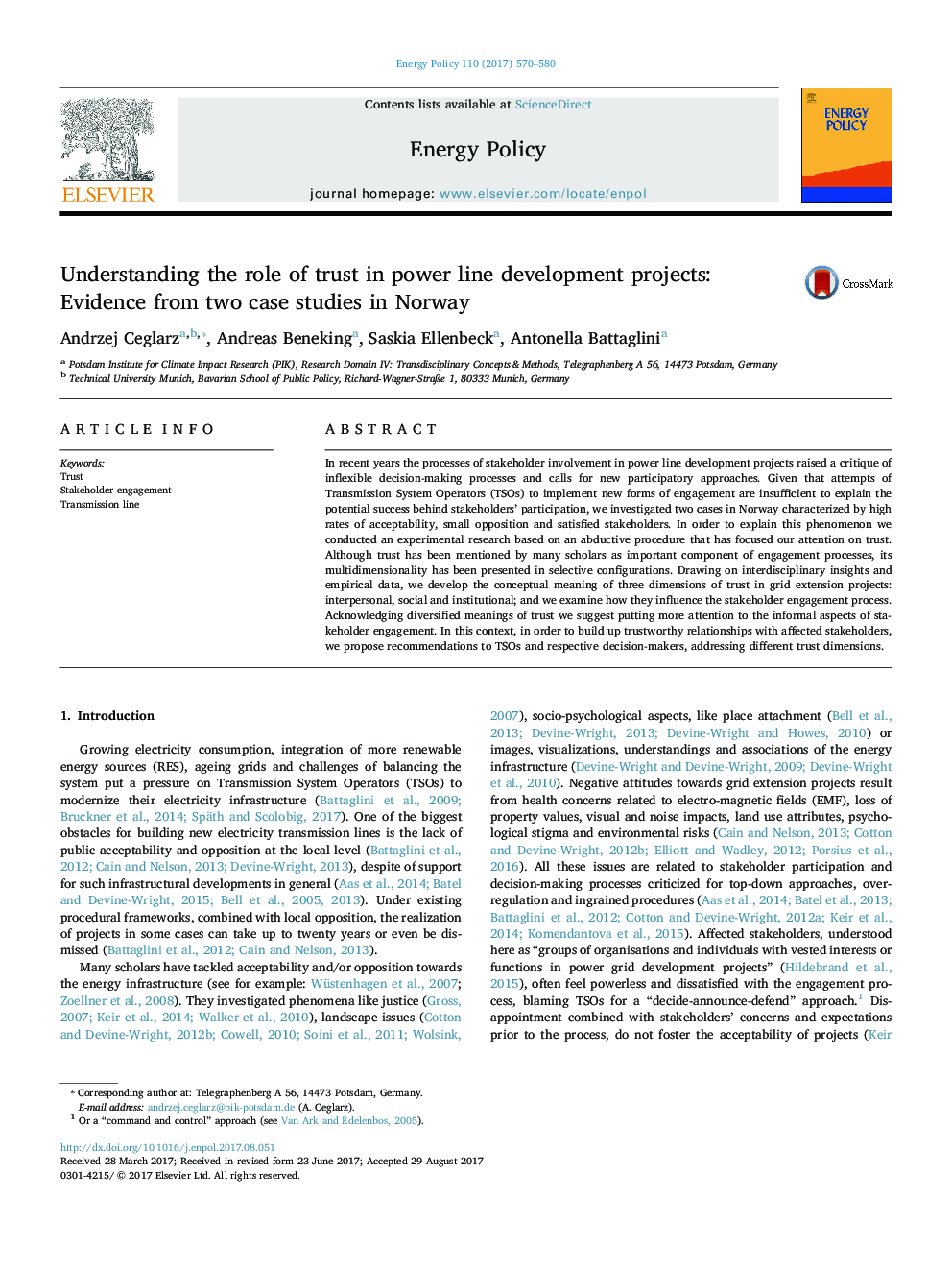| Article ID | Journal | Published Year | Pages | File Type |
|---|---|---|---|---|
| 5105567 | Energy Policy | 2017 | 11 Pages |
Abstract
In recent years the processes of stakeholder involvement in power line development projects raised a critique of inflexible decision-making processes and calls for new participatory approaches. Given that attempts of Transmission System Operators (TSOs) to implement new forms of engagement are insufficient to explain the potential success behind stakeholders' participation, we investigated two cases in Norway characterized by high rates of acceptability, small opposition and satisfied stakeholders. In order to explain this phenomenon we conducted an experimental research based on an abductive procedure that has focused our attention on trust. Although trust has been mentioned by many scholars as important component of engagement processes, its multidimensionality has been presented in selective configurations. Drawing on interdisciplinary insights and empirical data, we develop the conceptual meaning of three dimensions of trust in grid extension projects: interpersonal, social and institutional; and we examine how they influence the stakeholder engagement process. Acknowledging diversified meanings of trust we suggest putting more attention to the informal aspects of stakeholder engagement. In this context, in order to build up trustworthy relationships with affected stakeholders, we propose recommendations to TSOs and respective decision-makers, addressing different trust dimensions.
Related Topics
Physical Sciences and Engineering
Energy
Energy Engineering and Power Technology
Authors
Andrzej Ceglarz, Andreas Beneking, Saskia Ellenbeck, Antonella Battaglini,
